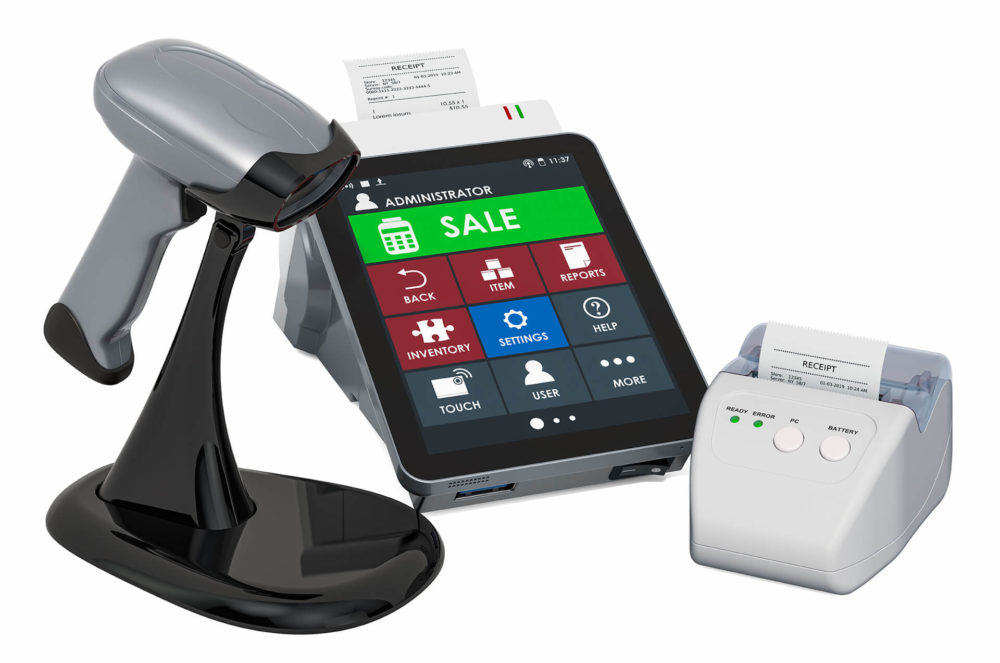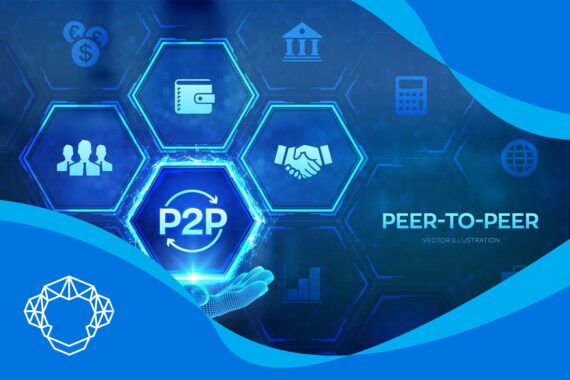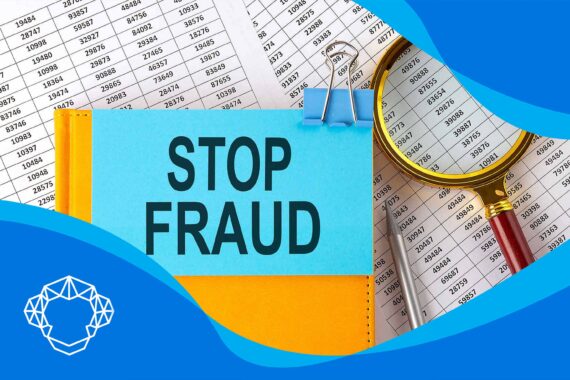Risk is one of the major factors that shapes the cooperation between economic actors when it comes to cashless transactions. If you’re an entrepreneur, it’s in your interest to avoid exorbitant fees and unfavorable agreements, which gets harder if you run a high-risk business. But there’s nothing to worry about as we’ll break down how to avoid problems and highlight the major factors you should consider when choosing the best credit card processing services.
Cashless transactions are gaining more and more prominence in the national economy, with a staggering 1.06 billion cards in use in the USA. And while they’re primarily convenient for consumers, executives must plan this area in great detail, especially if their dealings can be considered risky. Read on to find out where your enterprise stands and how you can reduce costs while getting premium solutions.
What Is a High-Risk Transaction?
The revenue must somehow be kept at a stable pace while a company attempts to create a budget surplus or stay afloat in the competitive market. Risky transactions are usually used to describe situations in cashless trade that can endanger that financial balance.
Any instances of mistakes in credit card fraud prevention or incurred chargebacks for another reason are considered to fall within this category and reflect negatively on the company’s profit. For this reason, all financial strategies, be they for small businesses or corporations, should propose sustainable solutions for those. But merchant service providers and financial institutions can’t go as deep as to analyze each transaction, which is why they tend to evaluate businesses in terms of their entire economic performance instead.

What Industries Are Considered High Risk?
If you’ve studied small business tax deduction rules, developed your techniques, and learned the answer to the question of What is dropshipping, you have a grip of the fundamentals of running an enterprise. The significant question you should ask yourself now is whether your business will be considered as belonging to high-risk industries or not.
Regardless of how the firm evaluates its ability to settle debt and its perceived risk index, every credit card processing company has its way of classifying its clients. Still, some industries are universally considered to be more volatile, and those are, among others:
- Adult-content retailers,
- Gaming and casino software providers,
- Debt collectors,
- Those dealing with drug paraphernalia,
- Investment consultants,
- Providers of attorney services,
- Cigarette manufacturers and wholesalers,
- Firearms dealers,
- Overseas merchants (not based in the US)
- Healthcare programs providers.
What Are High-Risk Products?
All products related to the abovementioned industries can be deemed financially unstable, with cigarettes, alcohol, and weapons being the prime examples. Their instability is ascribed to different state regulations across the US, and they’re usually the trickiest to export or import.
On the other hand, products can be seen as potentially problematic, even if they don’t belong to the list above. In the case that products you sell have a history of incurring chargeback, misused card not present transactions, or dubious tax refunds, you can also run into trouble finding a provider willing to approve your merchant account.

What Is a High-Risk Customer in the Eyes of Credit Card Processing Companies?
As you’ve probably realized so far, a customer imposes a threat if they’re involved in activities where money laundering possibilities are strong or in which the recompense rate is rising. These are some traits that a merchant processing company may consider to be a red flag for their operation.
A Business With a High Number of Chargebacks
Reimbursements and refunds are not beneficial for your enterprise, but you should understand how they come about to take control of them. High-risk companies need to know that the reasons behind chargeback can vary from their error to consumer and criminal third-party fraud.
Sometimes the mistakes business owners make in advertising cause dissatisfaction on behalf of the customers, or the lenient and vague refund policies impede the gain. In contrast, in other cases, consumers are intentionally or unintentionally dishonest. Having a provider willing to offer top-quality financial consultations is paramount here as you are doomed to fail in case you can’t manage your chargebacks.
An Offshore Enterprise
Due to legal regulations that vary from country to country, loopholes in harmonization with the US law have created a notorious reputation for offshore companies. To put it simply, if your headquarters are anywhere in the world, but you sell on the US market, chances are you’ll be considered a risky client.
Still, if your tax compliance is transparent and your operations are legal, you shouldn’t accept extortionate merchant services rates. A reputable provider will be able to offer you better options, such as reserves and similar solutions.
A Merchant Which Offers Services Tied to Illegal Practices
As mentioned above, questionable legality products usually won’t be viewed as low-threat ones by providers. But, it goes beyond products as all businesses whose dealings are often considered to border scams, deceit or vagueness may also suffer consequences. This means that life-coaching and motivation, investment consultations, and even moving service providers may face obstacles.
However, if you’re not using your merchant account for high-risk business for credit card factoring and for purposes that weren’t approved, every top-rated company will give you a deal that won’t jeopardize your profits regardless of your industry.

Types of Financial History That Can Make Your Chances of Getting a High-Risk Account Small
What you’re selling or providing your customers with is not the sole determining factor. Your financial history can also largely influence whether processors will verify your account. When an owner opts for applying for a merchant account, processors also pay attention to these points:
- Enterprise history – what your credit card transaction fees policy was and how you handled it, what your previous merchant statements look like, and how you tackled debt,
- Length of your professional undertaking – if you’re a novice or are in the game briefly, some processors may be reluctant to approve you,
- Personal credit score – the higher it is, the better,
- Your reputation – in case you wind up on the MATCH or TMF lists, no processor will wait for you with open hands as these stipulate which firms have severely violated the agreement they had with their provider or acquirer.

What Is the Best High-Risk Credit Card Processing Merchant Account You Should Get?
Regardless of where your entrepreneurial adventure falls within the spectrum of different types of businesses, reaching a favorable agreement with processors is not impossible if you know what to expect and look for. If you heed these tips, getting superb merchant services will be easier than you think.
Benefits Your Provider Should Include in the High-Risk Account
Certain companies deal solely with files for risky merchants, whereas others take on all kinds of businesses. Still, if someone specializes solely in the more risky spheres, it doesn’t mean they’re necessarily a better match for you.
It’s more important to pay attention to their overall presentation, contract terms, and benefits. Apart from explaining what merchant services are and how they will affect your spending and transactions, it is preferable to have free financial consultations and next-day funding as options. The first one will open your eyes regarding how to reduce expenditure, and the second perk helps you stay on the ball at all times.
Your Credit Card Payment Gateway for High-Risk Business Must Be Safe
To put it simply, a payment gateway is a service provided by the merchants that authorizes cashless payment, regardless of whether you operate some of the e-commerce business models, a brick-and-mortar type, or bricks and clicks model. Whatever your concept is, the merchants you choose to rely on must ensure your gateway is secure.
The less safe your gateway, the more problems, and potential frauds can cause you headaches. So, your payment gateway needs to follow the safety encryption protocol. Your consultant must explain and recommend to you the best picks to go for and how they will affect the completion of your transactions.
All Types of Cashless Payment Options Must Be Covered
Since our national economy is the global leader and innovator in the field, the number of cashless payment options is growing all the time. Customers like freedom of choice and convenience more than anything, so you need to stay relevant in this area as well.
This means that your merchant account provider should be able to offer you whatever fits your context best, from traditional POS machines to virtual terminals. Besides, the POS terminals that can accept Apple Pay, Google Pay, and Samsung Pay are also getting more prominence. So, give this point a thought before you choose which company to cooperate with.

Things to Avoid When Choosing Merchant Services
A risky project implies a possible loss for the credit card processing company, which is why owners may face stricter contract terms. Still, there are some things you shouldn’t agree to. Though a pos fee is inevitable, you should avoid overpaying processing services or being manipulated in another way. These are three deal-breakers that you shouldn’t settle for.
Unnecessary Fees
We can’t tell you whether you should shun the early termination fee, the rolling reserve, or the liquidated damages clause as they can all be used as means for the provider to get a deposit of some sort and can be fine if they’re not misused. Still, if all of these are existent in the contract, that’s a bad sign, especially if they’re in the fine print.
Most reputable merchants providers satisfy themselves with only one backup strategy and are aware that their client must understand precisely why it’s imposed.
Vague Contract Provisions
Economics can be speculative, but the more speculative it gets, the worse for you. When determining what a good effective rate for credit card processing is, ensure you understand all of your contract provisions. The more clear and understandable your contract is, the less room you leave for the company to do their ‘magic.’ Needless to say, a contract is a must, and you should review it thoroughly before you decide to sign.
Negative Reviews and Poor Internet Presence
Finally, browse through reviews in trustworthy sources, such as BBB and Ripoff Report, to assess whether your choice has what it takes to transform your work and boost your profit. PCI compliance, reasonable rates, and available customer support can’t be missing.

Choose the Best Value for Your Money if You Run a High-Risk Business
To sum up, if you’re on the riskier side of the scale, it’s not the end of the world. With our suggestions, you’re fully equipped to find credit card processing services that are easy to set up and don’t come at an excessive price. And if the provider you contact includes free-of-charge financial consulting from an unbiased expert, you can stop worrying and start enjoying your entrepreneurial journey.







